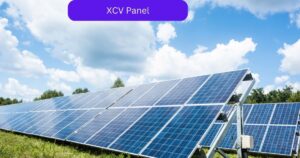A heat pump water heater is an innovative appliance that uses electricity to move heat from the air or ground to heat your water. They are known for their energy efficiency, but like any technology, they come with their set of disadvantages.
Have you ever considered a heat pump water heater for your home? They’re touted as energy-efficient and eco-friendly, but there’s more to the story. Let’s dive into the potential drawbacks of these modern water heating systems.
Heat pump water heaters operate on the principle of transferring heat from the surrounding environment to heat water, and they’ve gained popularity for their ability to slash energy bills. However, it’s crucial to weigh the pros and cons before deciding if they’re the right fit for your home.
Cons of Heat Pump Water Heaters
Reduced Efficiency in Cold Climates
Heat pump water heaters operate by extracting heat from the air or ground, making them highly efficient in moderate temperatures. However, one significant drawback is their reduced efficiency in cold climates. When the surrounding air is chilly, there’s less heat available for the system to use, leading to a decrease in its overall efficiency. So, if you live in a region with harsh winters, your heat pump water heater may not perform as expected.
Higher Initial Cost
One notable drawback of heat pump water heaters is their higher initial purchase price compared to traditional electric or gas models. While this initial cost can be a deterrent, it’s important to weigh it against the long-term energy savings they offer.
Installation Requirements
Heat pump water heaters are generally larger and require more installation space than conventional units. You’ll need adequate space to accommodate the unit, which can be a limitation in homes with smaller utility rooms or tight spaces.
Maintenance and Repairs
Regular maintenance is crucial for heat pump water heaters, including tasks like cleaning air filters and checking refrigerant levels. Neglecting maintenance can lead to decreased efficiency and potentially costly repairs. Additionally, finding qualified technicians for repairs may be more challenging in some areas.
Climate Limitations

The effectiveness of a heat pump water heater can be influenced by the ambient temperature. In colder climates, these units may be less efficient, leading to reduced hot water production and potentially higher operating costs. It’s important to consider the climate in your area when deciding on a heat pump water heater.
Higher Initial Cost
Another disadvantage to consider is the higher upfront cost of heat pump water heaters compared to traditional water heaters. While they promise substantial long-term energy savings, the initial investment can be a significant barrier for some homeowners. It’s essential to evaluate your budget and weigh the upfront expense against the potential savings in energy costs over time.
Space Requirements
Heat pump water heaters are notably larger than their traditional counterparts, which can pose challenges in terms of installation. The size of these units requires more space, which might be a disadvantage if you have a cramped utility area or need to replace an existing water heater in a tight space. This could lead to additional costs and complexities during installation.
Noise Levels
One potential Disadvantages of a Heat Pump Water Heater that often goes unnoticed is the noise generated by heat pump water heaters. These systems incorporate fans and compressors that can produce some noise during their operation.
While many models are designed to be quieter, homeowners should be aware of potential sound disturbances. Especially if your water heater is located in or near living spaces, the noise levels can be a disadvantage to consider.
Not Suitable for Smaller Homes
Another disadvantage of heat pump water heaters is that they may not be suitable for smaller homes. These systems, as mentioned earlier, tend to be larger than traditional water heaters. As a result, they require more installation space. In compact homes or utility areas with limited room for a water heater, accommodating a heat pump system can be challenging.
The need for adequate space for installation can make it impractical for smaller residences. Homeowners with limited utility room or basement space may find it difficult to integrate a heat pump water heater into their homes without making significant modifications.
In such cases, the space constraints and installation challenges become considerable drawbacks, and homeowners may need to explore alternative water heating solutions that are better suited to their smaller living spaces.
Heat Pump Water Heaters Take Longer to Heat Water
One of the disadvantages of heat pump water heaters is that they generally take longer to heat water compared to traditional electric or gas water heaters. This delayed heating process is primarily due to the technology used in heat pump systems.
Heat pump water heaters operate by extracting heat from the surrounding air or ground and transferring it to the water, a point highlighted in the Disadvantages of a Heat Pump Water Heater.
This process, while energy-efficient, can be slower when compared to the near-instantaneous heating provided by electric or gas heaters. It means that you might need to wait longer for hot water to be readily available when using a heat pump water heater.
The delay in hot water production can be inconvenient, especially during peak usage times, when multiple household members need hot water simultaneously. It’s important to consider this factor and plan your hot water usage accordingly to avoid unexpected cold-water surprises.
Greater Up-Front Expenses
Heat pump water heaters come with greater upfront expenses compared to traditional water heaters, which is another disadvantage to consider. While these systems offer long-term energy savings, their initial cost can be a significant investment.
The higher upfront expense, as outlined in the Disadvantages of a Heat Pump Water Heater, is primarily due to the advanced technology and components used in heat pump water heaters. These systems are designed to be energy-efficient and environmentally friendly, but the sophisticated engineering contributes to the increased cost.
When homeowners are looking to replace or upgrade their water heaters, the higher initial cost of a heat pump system, or the question of whether you can lay a water heater on its side, may give them pause. It’s important to weigh this upfront expense against the expected long-term energy savings and environmental benefits these systems provide. Careful budget planning and cost analysis are essential when considering the purchase of a heat pump water heater.
| Disadvantage | Description |
| Reduced Efficiency in Cold Climates | Lower efficiency in extremely cold weather due to reduced available heat for extraction. |
| Higher Initial Costs | Significantly higher upfront expenses compared to traditional water heaters. |
| Space Requirements | Larger size requires more installation space, potentially leading to modifications and added costs. |
| Noise Levels | Operation may generate noise, which could be disruptive, especially if the unit is near living spaces. |
| Complexity | These systems are more complex, making installation and maintenance potentially more challenging. |
| Not Suitable for Smaller Homes | Larger size and space requirements may make them impractical for smaller residences. |
| Longer Heating Time | Takes longer to heat water due to the technology used, potentially leading to delayed hot water availability. |
| Greater Up-Front Expenses | The initial cost is notably higher, primarily because of the advanced technology and components used. |
FAQs
Q: Are heat pump water heaters a cost-effective choice for smaller homes?
A: Not typically, as their larger size and space requirements may be impractical for compact residences.
Q: How do heat pump water heaters compare in terms of noise levels?
A: They can generate noise during operation, which may be disruptive, especially if they are located near living spaces.
Q: Do heat pump water heaters work efficiently in extremely cold climates?
A: No, their efficiency tends to decrease in very cold weather due to limited available heat for extraction.
Q: Are there additional maintenance challenges with heat pump water heaters?
A: Yes, their complexity can make installation and maintenance more challenging, potentially requiring professional assistance.
Q: How long does it typically take for a heat pump water heater to heat water?
A: Longer than traditional water heaters due to the technology used, which can result in a delay in hot water availability.
Conclusion
In conclusion, heat pump water heaters offer energy-efficient and environmentally friendly heating solutions, but they come with their own set of disadvantages. These include reduced efficiency in extremely cold climates, higher upfront costs, space requirements that may necessitate modifications, potential noise disruptions, system complexity, and impracticality for smaller homes.
Additionally, the longer time required to heat water and the greater initial expenses can impact their convenience and affordability. However, these disadvantages should be evaluated in the context of their long-term energy savings and eco-friendly attributes.
By thoughtfully evaluating these factors, homeowners can make well-informed decisions that align with their heating requirements and environmental objectives. It’s crucial to assess the advantages and disadvantages to ascertain whether a heat pump water heater is the suitable choice for your individual circumstances.











